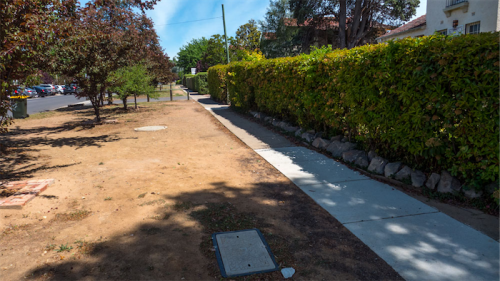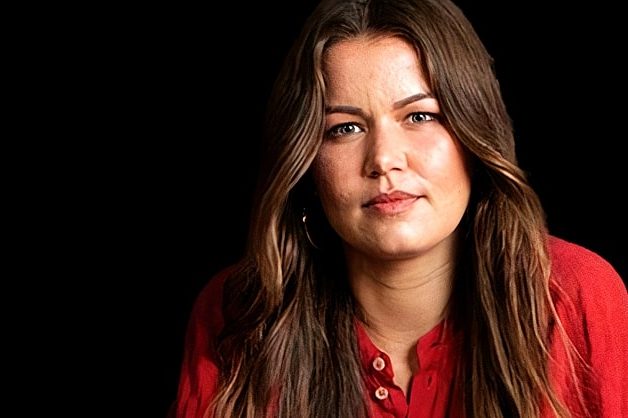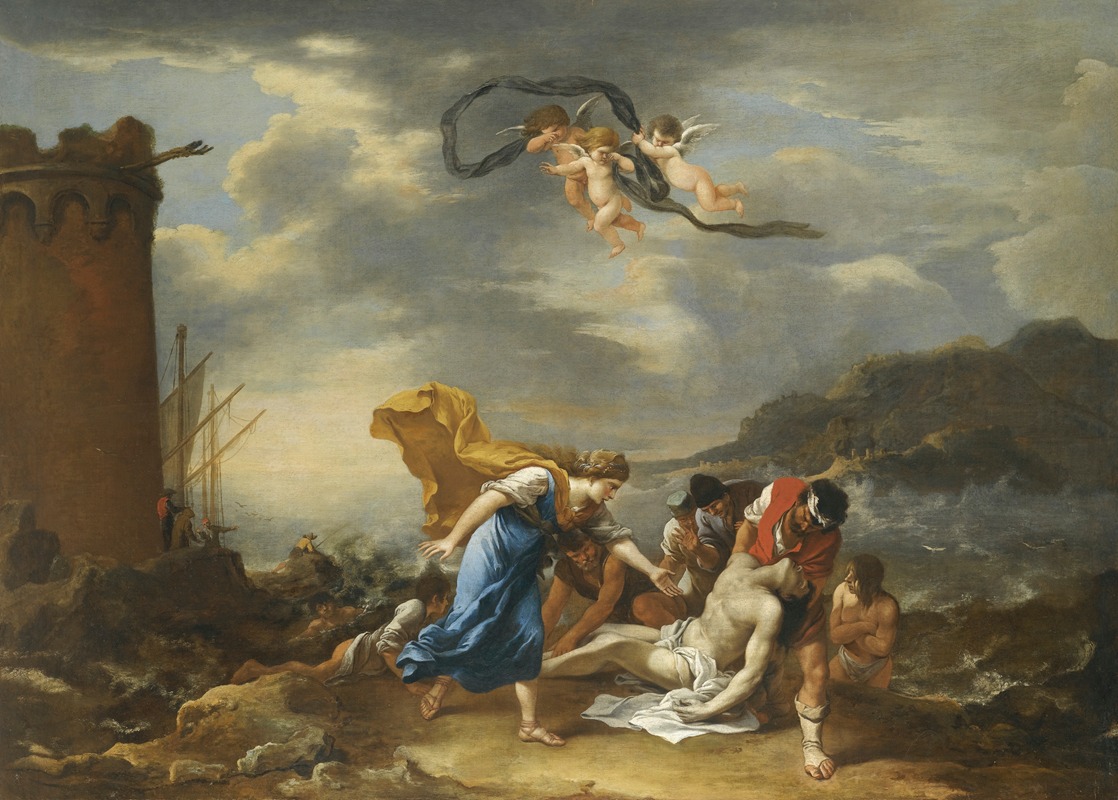
SOMETIMES Canberra residents or developers fight a heritage decision for the wrong reasons, such as to destroy landscapes or buildings that are important to the city’s history.

Then there are stories where the resident is attempting to get it right. Here’s one such story. It is a case study of bureaucrats doing an important task but not keeping an eye on the unfortunate results.
This property is in Griffith opposite the Manuka shops and is one of those heritage-listed, double-storey buildings that line the edges of the shopping centre. Most, but not all, of these are now used for businesses.
The owner was concerned for the footpath areas. These are included in the heritage listing with his building. He has no problem with this heritage classification. The problems are with the listing’s administration.
The concreted pathway is in good order. The problems are that it is narrow and too close to the hedges. It is difficult for people to walk together and impossible for pedestrians to pass in opposite directions without stepping on to what should be lawn. It isn’t lawn. It is mainly dirt – or mud when it rains.
The owner tried to replace the mess with gravel. Nope! That would not be heritage. So we have dirt and some weeds. Heritage dirt?
To make matters worse for the owner, the shade from a footpath tree provides an escape from the sun for smokers. Given the area’s shabbiness, smokers feel free to leave piles of butts for someone else to deal with. The owner needs to get it cleaned up almost weekly.
Some new footpath trees were suffering because they had been planted in dry-earth areas and then left to survive. The owner installed catchment areas with borders using his own bricks and mulch to catch any water. These young trees are now in better condition.
Workers replaced a concrete top to a service main (possible gas) and added their own touch to the area by leaving a pile of rubble despite promises that it would be removed. And then there is a series of metal covers over a deep hole containing all manner of infrastructure. Recent work has left one plate missing with a flimsy piece of wood and orange cone that only partially cover the hole. Late-night wanderers may be in for a dangerous surprise.
The footpath area, while deemed heritage, is a mess. The owner would like it to be otherwise. Efforts to have things improved have been thwarted by well-meaning heritage bureaucrats. It would take a site visit to see how their efforts and those of other public functionaries have got this so wrong.
This property owner shares a fence line with his neighbouring owner that includes a dominant and aged large pine tree. The base has deteriorated to the extent that it is in danger of coming down. That will mean extensive damage to property and cars in the driveway. The occasional branch falls and the root system is suspected of doing its thing with nearby walls – cracks here and there.
The joint owners would like to have the tree removed and replaced with more friendly trees or shrubs. But alas, this huge deteriorating tree is deemed to be significant. To the owners the significance is about the potential significant damage to people or buildings. The insurance companies see the problem and will not provide insurance that involves harm from that monster.
As with other cases like this, the bureaucracy fails to see the logic and ignores the consequences of their stupidity. A site visit would inform anyone of the issues and see the logic of working with the owner to have replacement greenery before someone gets hurt.
Heritage remains very important but decisions should be based on obvious evidence as well as intelligence and common sense. Sadly this case study is not so unusual in Canberra.
Who can be trusted?
In a world of spin and confusion, there’s never been a more important time to support independent journalism in Canberra.
If you trust our work online and want to enforce the power of independent voices, I invite you to make a small contribution.
Every dollar of support is invested back into our journalism to help keep citynews.com.au strong and free.
Thank you,
Ian Meikle, editor








Leave a Reply